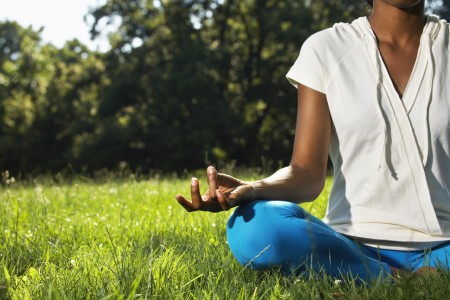You’ve been to a few yoga classes and have done some yoga workshops, and now you would like to delve a little deeper into the yoga world. The decision is made, for your next holiday, you are going away on a yoga course. You have been to see the Eat, Pray, Love at the cinema and may not be able to go on a spiritual journey all over the world but two weeks is a good start.
Yoga holiday or yoga retreat?
While the distinction between a yoga holiday and a yoga retreat is not always clear, (sometimes, even the organisers have not thought enough about how to accurately name their course), there is quite a difference in terms of focus and general feel or atmosphere. Generally speaking, a yoga holiday is primarily an activity holiday. The time devoted daily to yoga usually won’t exceed four hours, in one, or possibly two daily classes, and you will have time for other activities or just to relax and chill out. The location should reflect this, with a beach or other notable attractions nearby. The atmosphere is often relaxed, and it is usually a great opportunity to meet other like-minded people. On a retreat, on the other hand, the yoga schedule is likely to be a bit more intense. Retreats should be fully residential, the food vegetarian, and meal times carefully thought out to fit smoothly within the daily yoga routine. So it’s up to you yoga holiday or yoga retreat?
Go alone, or take a friend?
Going alone is not a problem. In fact, the vast majority of people going on yoga course go on their own. The downside to going on your own is that you might have to share a room with one or more complete strangers, but at least, you will know that, like you, they have a keen interest in yoga, and great friendships are formed on yoga courses. A few yoga centres will welcome guests who don’t do yoga, but in most cases, and certainly in the case of a retreat, yoga should be a shared interest, so if you don’t want to go alone, a yoga pal is a far better choice than your new boyfriend (unless, of course, you met him on a yoga weekend!)
What style, what teacher?
Perhaps more important than the location is the teacher and the style of yoga. You might find some useful information on the Internet, as most established teachers now have websites. This should at least give you an idea of who they are and of whether their style of teaching (and style of yoga) will suit you. If nothing else, don’t be afraid to ask the teacher such questions as who they studied with, how long they have been practising and how long they have been teaching yoga. Tell the teacher about your yoga experience, level of fitness. It is also recommended to try the style of yoga that will be taught as part of the holiday/retreat by taking a few classes in your area.
What to bring?
Check whether you’ll need a yoga mat. Bring some reading, yogic or not, and don’t forget your practice clothes.










Thanks I have really enjoyed this article